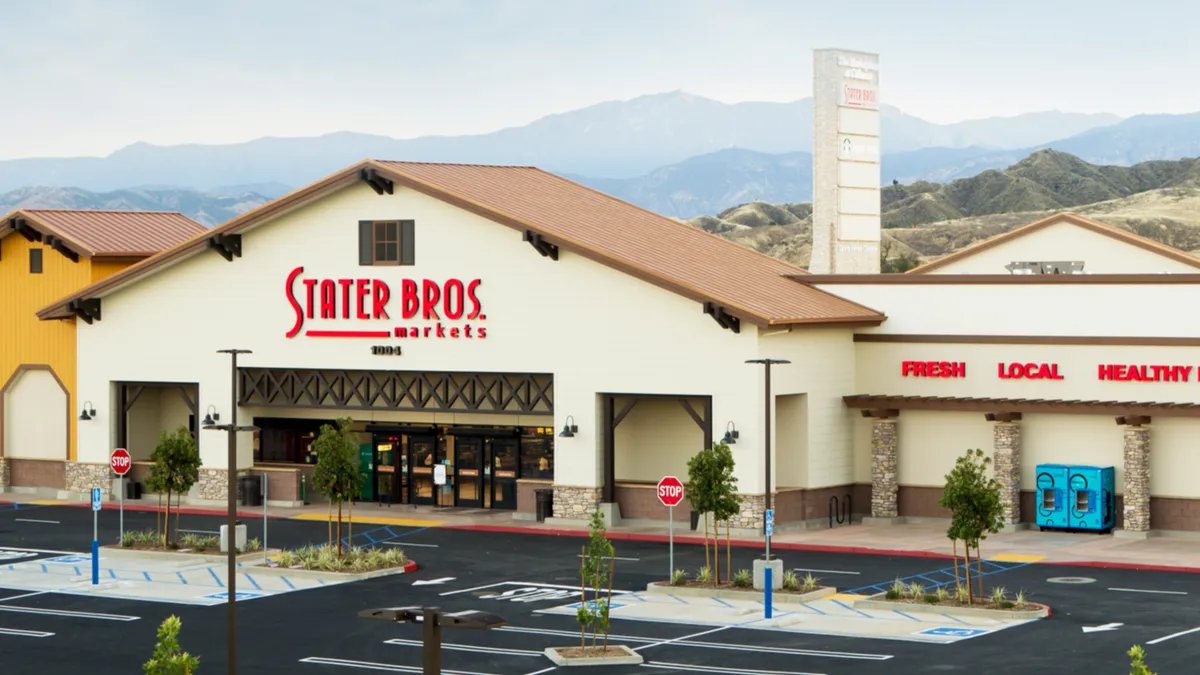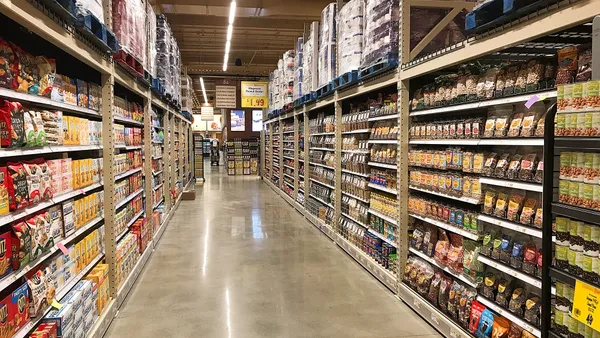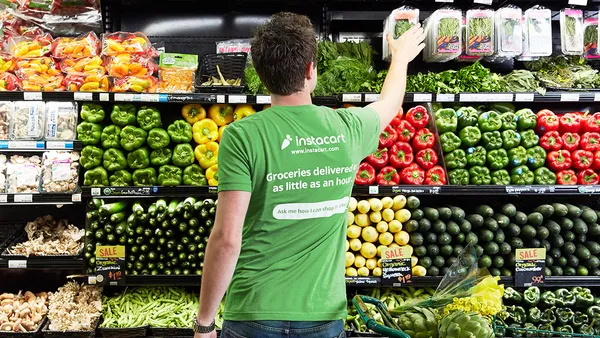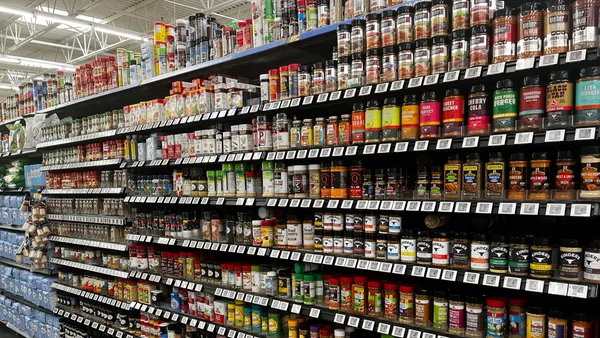Dive Brief:
- Southern California supermarket chain Stater Bros. Markets is developing an online grocery platform under its own brand using technology provided by Mercatus, a Toronto-based provider of e-commerce systems for retailers, the companies told Grocery Dive.
- Stater Bros. intends to operate the new e-commerce platform in addition to its existing presence on Instacart, according to a Mercatus representative.
- Stater Bros. is in the company of other retailers that are also looking to gain added control of their e-commerce operations even as they maintain relationships with third-party providers.
Dive Insight:
Stater Bros. is casting its relationship with Mercatus as a way for the grocer to connect with people through its online channels and tap the equity it has built with customers over more than 80 years.
The privately held retailer, which runs 170 grocery stores, indicated it wants shoppers to more closely associate their experience making purchases online with the image the chain has cultivated in its stores.
"We see this as an opportunity to build stronger relationships with our shoppers through an eCommerce journey that truly embodies our brand’s promise of excellence in food and service," Pete Van Helden, CEO of Stater Bros., said in a statement.
Sylvain Perrier, president and CEO of Mercatus, said the company aims to allow clients like Stater Bros. to strategically align their online and in-store experiences to boost sales no matter which channel shoppers use.
"Merchandising in the store is done in a very specific way … and there's a reason for that," Perrier said. "If you look at the online world, it's similar in terms of how you lay out [the experience] to get not just the most efficient, quickest experience for the consumer but also maximize the value of the cart."
In addition, Mercatus' system can help retailers coordinate in-store operations with their online fulfillment activities, Perrier said. For example, store workers can use information about how products are organized on a grocer's website or app to guide their decisions about where to locate items to help pickers quickly find them when assembling orders, he said. Grocers can also customize their online offerings on a store-by-store basis using Mercatus' system.
Stater Bros. plans to use the Mercatus platform in conjunction with Applied Data Corp.'s ShopperKit technology to support its own in-store picking capabilities, according to Mercatus. In addition, the retailer intends to deploy Radius Networks' Flybuy geolocation system, which allows customers to share their location with a grocery store while en route to pick up an online order.
The Mercatus platform also will allow Stater Bros. to tap the CitrusAd retail media network to bring in advertising revenue from CPGs looking to promote products, Mercatus said.
Beyond offering retailers the ability to customize their online operations, grocer-run e-commerce platforms can also help retailers avoid costs associated with filtering sales through marketplaces like those offered by Instacart and Shipt. At the same time, however, retailers benefit from the broad access to online consumers those third-party platforms provide.
Sprouts Farmers Market, which operates its own e-commerce platform in addition to a presence through Instacart, is seeing a growing percentage of its digital revenue coming through its house-branded online system, the grocer's Chief Financial Officer Denise Paulonis said during an earnings call in May. The grocer uses Instacart's technology as the backbone for the system, but uses its own staff to pick orders and interacts with customers through Sprouts' own website.
"As we're bringing those customers in a little closer to us, we have an opportunity to have more customer data, a more direct relationship with those customers and to monetize that a little bit more than what we can simply do when … selling through a marketplace," Paulonis said.












